Solidarity Summer School: June Session
28.06.2023
General
Day 1
Our first of classes began with an introduction to the Summer School by our director, dr. Jakub Synowiec, Ph.D. Our students then delved into the topic of solidarity with Prof. Krzysztof Brzechczyn, who gave them a historical overview of in the 19th and 20th centuries.
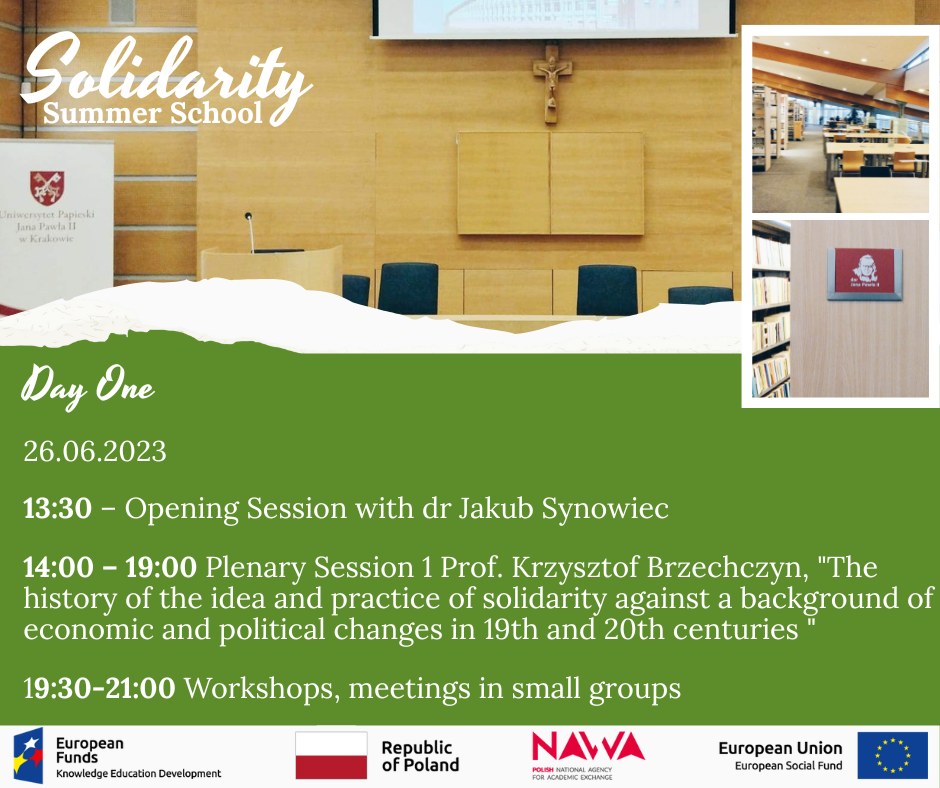
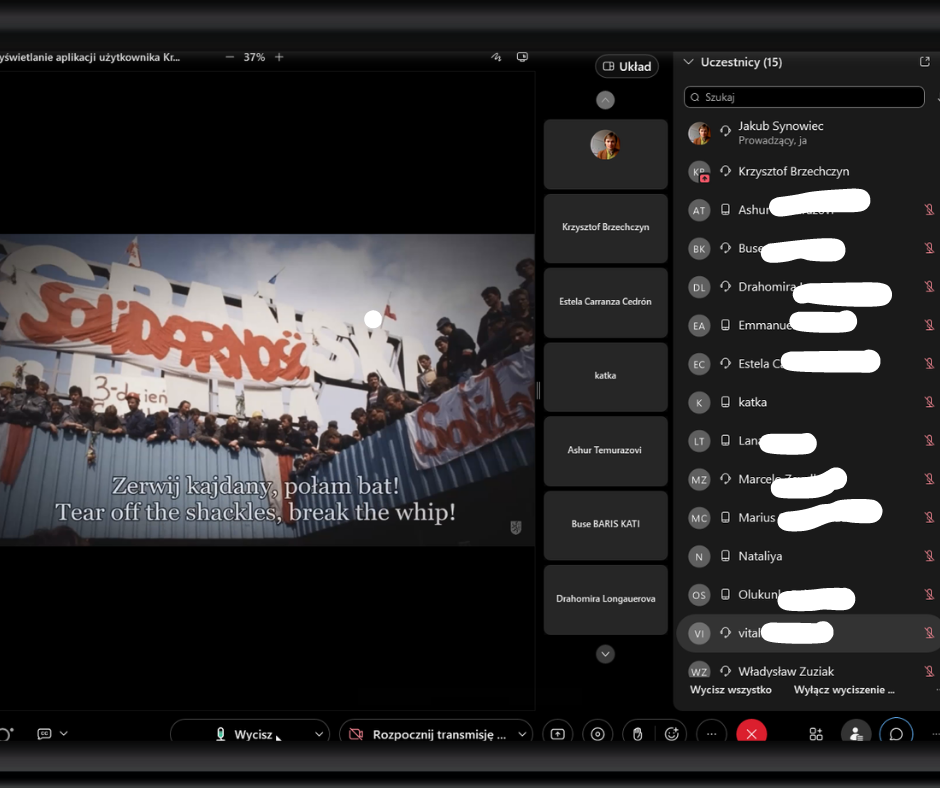
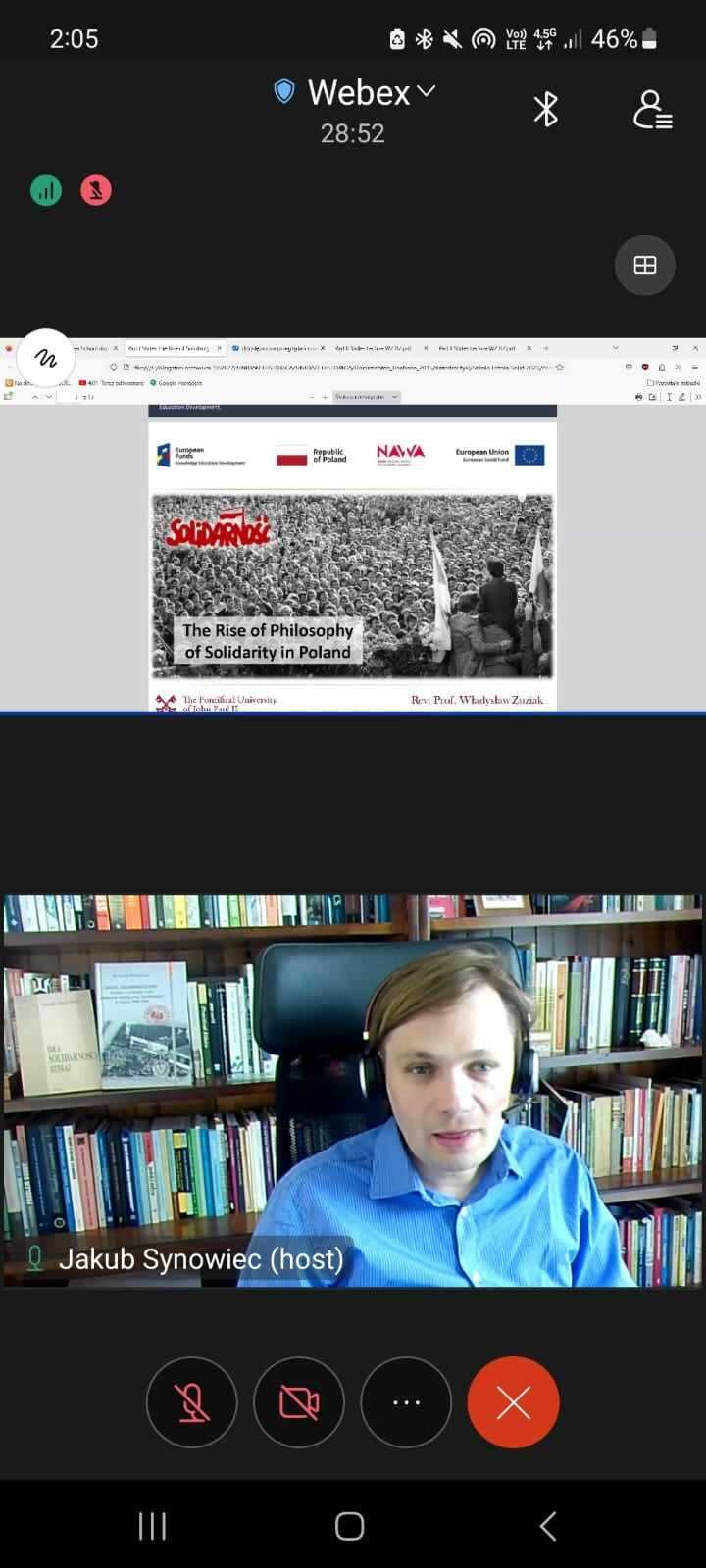
Day 2
Rev. prof. Wadysław Zuziak led the second day of classes at the Solidarity Summer School. Our students were introduced to two people who are of particular importance to the topic of solidarity: Pope John Paul II and Józef Tischner.
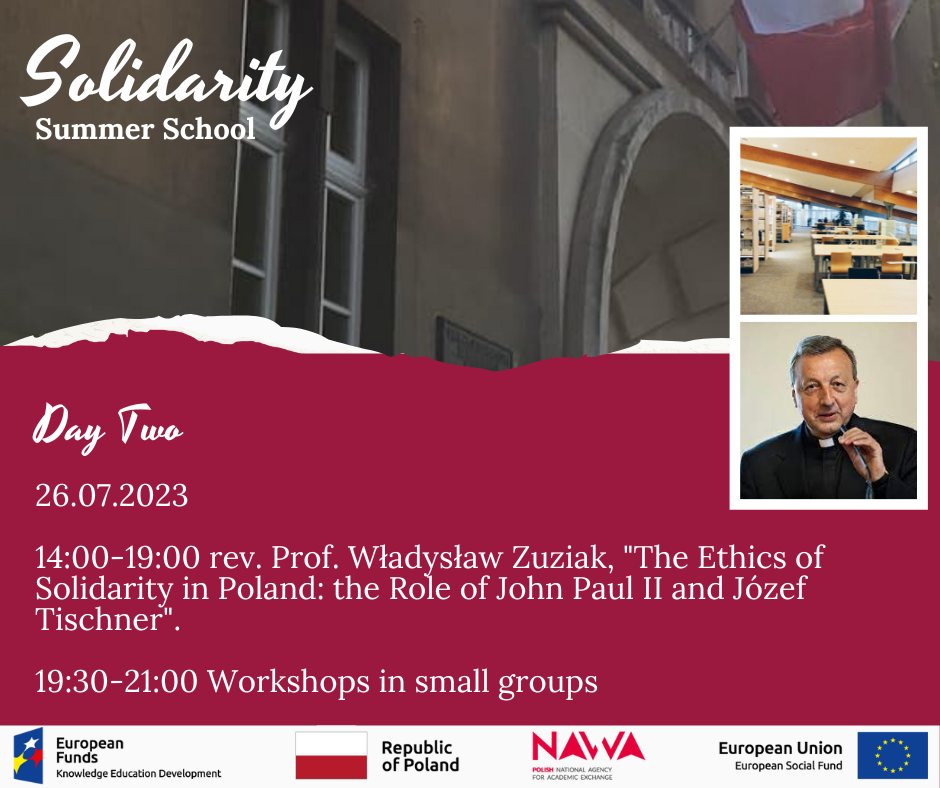
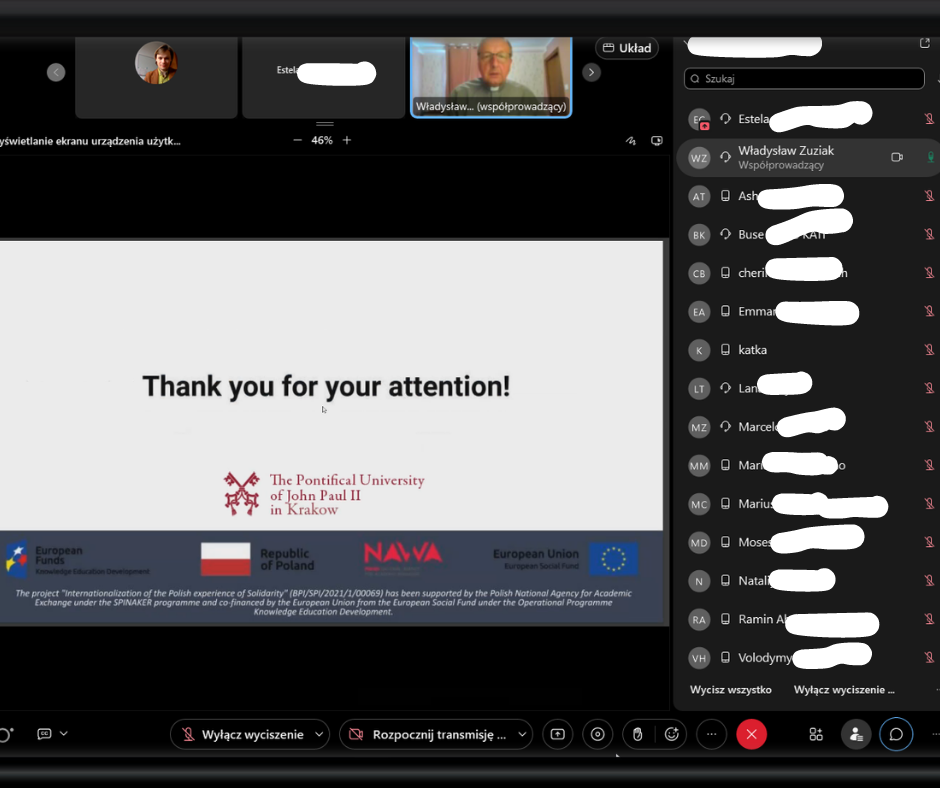
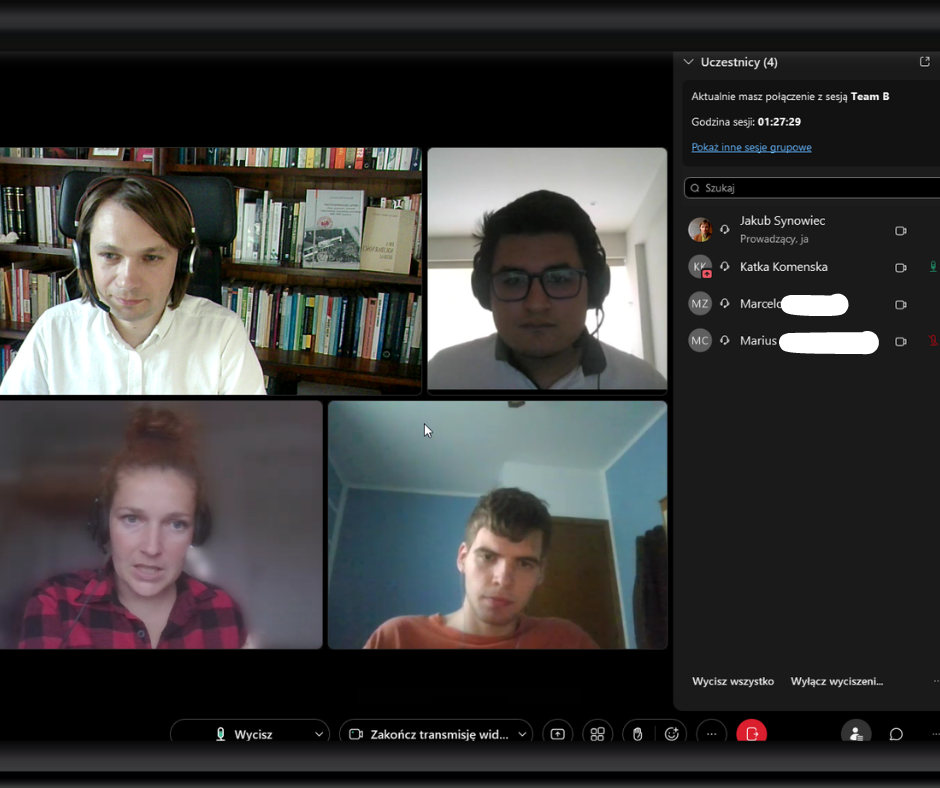
Day 3
Today, our students had the opportunity to learn with Prof. Stefano Zamagani. Prof. Zamagni is a Professor of economics at the University of Bologna, a member of the Human Development and Capability Association, and currently holds the role of president of the Pontifical Academy of Social Sciences. The Pontifical Academy of Social Sciences was founded in January 1994 by Pope John Paul II and works to help the Church develop its social doctrine. He is the author of numerous books and articles on welfare economics, consumer behavior theory, social choice theory, economic epistemology, ethics, history of economic thought, and civic economy.
During today's classes on solidarity in Europe, Prof. Stefano Zamagni showed our students various sources of European culture and their impact on shaping the idea of solidarity in the contemporary world. He introduced them to the idea of solidarity in the cultural, religious, and social contexts. The students debated to what extent Christianity and theology have had a real impact on the emergence and development of the idea of solidarity in socio-economic life. They also discussed the presence of the idea of solidarity in various sectors of public life. This pushed the group to consider to what degree the principle of solidarity is sufficient in conducting a dialogue between states on the presence of immigrants in Europe. Our final discussion pushed us to ask whether, and to what extent, solidarity is at the heart of the EU.
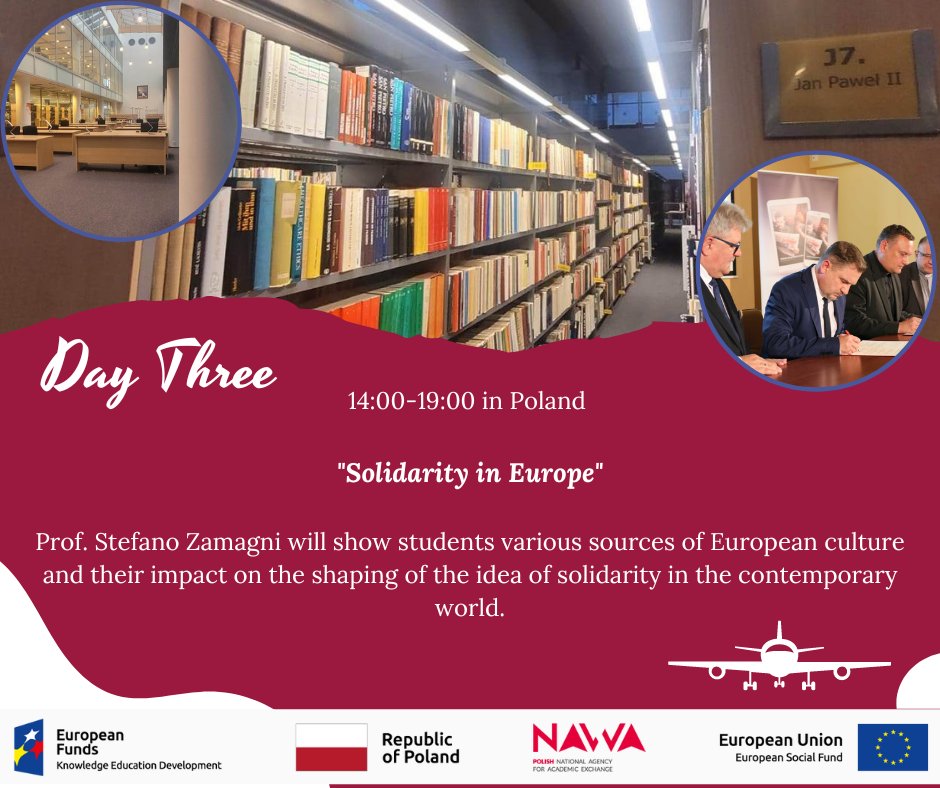
Day 4
Today's classes were taught by prof. Joachim Wiemeyer. His lecture discussed "Solidarity in the global economy". Prof. Wiemeyer studied economics, political science, and Catholic theology in Münster. He earned his doctorate in economics, a licentiate in Catholic theology, and his habilitation for Christian social ethics. From 1993-1998, prof. Wiemeyer was a professor for social policy and political science at the Catholic University for Applied Science in Osnabrueck/ Vechta. From 1998-2021, he was a professor of Christian social ethics at the Catholic-Theology Faculty of Ruhr-University Bochum. Since 1989, prof. Wiemeyer has been a member of the expert group “World Economy and Social Ethics” of the German Bishops´ Conference. His current research focuses on the global economy, the ethics of digitization, the economics of the Church and charity, and the future of the welfare state.
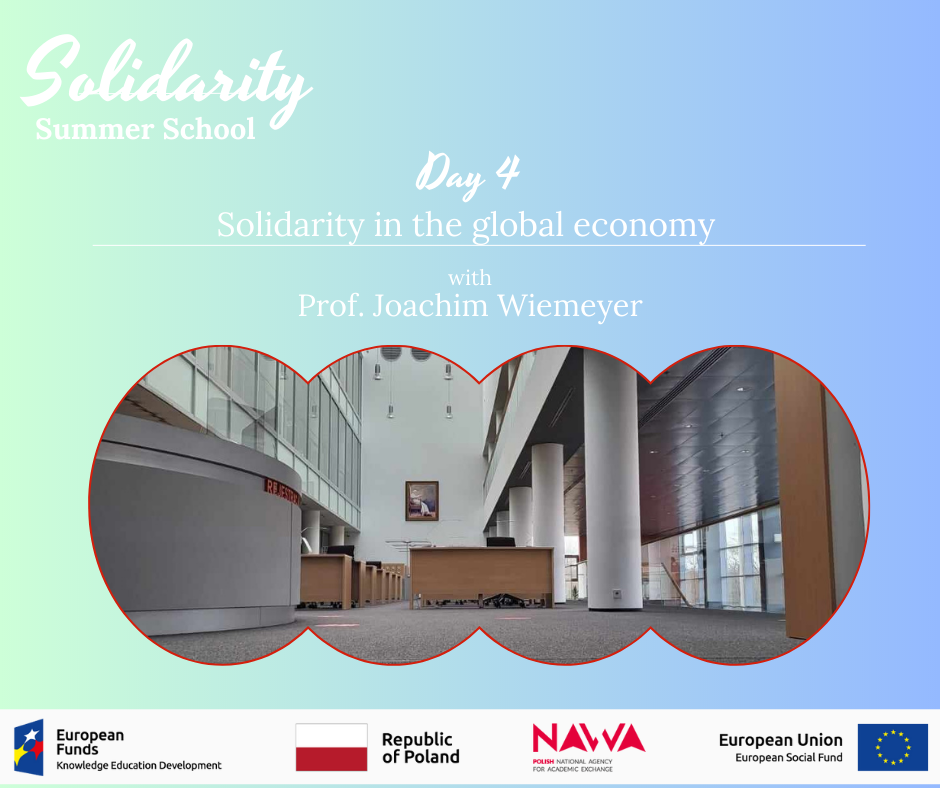
Day 5
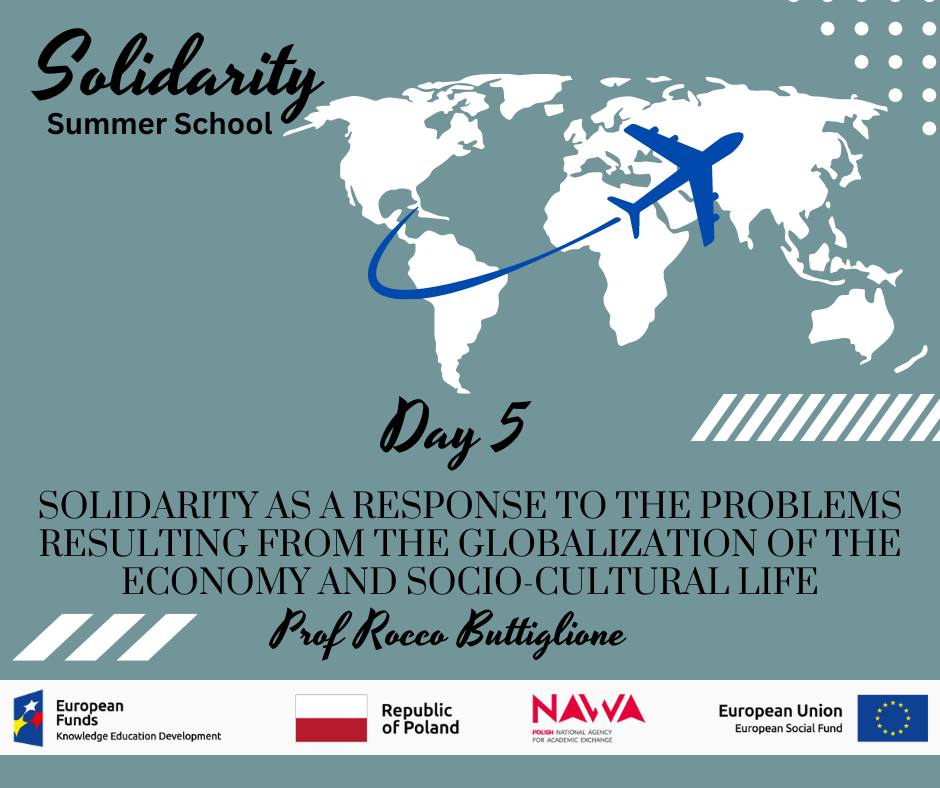
Our final day of classes at the Solidarity Summer School was led by Prof. Rocco Buttiglione. Prof. Buttiglione spoke on "Solidarity as a Response to the Problems Resulting from the Globalization of the Economy and Socio-cultural Life". The class's discussion centered around the meaning and role of Christianity in shaping the Polish experience of solidarity. With our students, we considered this experience, the concept of "human ecology", and how a modernized understanding of the idea of solidarity, expressed in the light of Catholic social doctrine, has the potential to solve the crises faced by working people around the world.